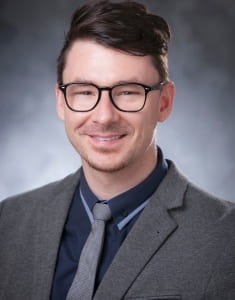
Alexander Grabner, MD – PostDoc
Alex was a PostDoc in Dr. Faul’s laboratory at the University of Miami Miller School of Medicine from 2012 to 2016. Prior, he went to medical school at the University of Graz in Austria, and he received his first postdoctoral training in the laboratory of Dr. Stefan Reuter in the Department of Medicine and the Division of Experimental Nephrology at the University of Münster in Germany. Alex is currently an Assistant Professor of Medicine at the Duke University School of Medicine in the Division of Nephrology, and he has the goal to establish an independent academic career with focus on translational cardio-renal research. His ongoing research is supported by a Carl W. Gottschalk Research Scholar Grant from the American Society of Nephrology (ASN) that he received in 2018. During his time in Dr. Faul’s group, Alex studied the direct effects of FGF23 on the heart using various cell culture and animal models, and he was the first to identify FGF receptor isoform 4 as the cardiac FGF23 receptor that acts in a klotho-independent manner. His postdoctoral research led to 10 peer-reviewed original articles, including 2 first-author papers, as well as 2 review articles. Alex has been supported by postdoctoral research fellowships from the American Heart Association (AHA) and from the Deutsche Forschungsgemeinschaft (DFG), as well as a young investigator award from Roche. In 2018, Alex received the Bernd Sterzel Award from the German Society of Nephrology (DGfN) for the research he had conducted in Dr. Faul’s laboratory. While in Dr. Faul’s group, Alex gave oral and poster presentations at several conferences, including the Kidney Week of the American Society of Nephrology (ASN) and the German Society of Nephrology (DGfN).
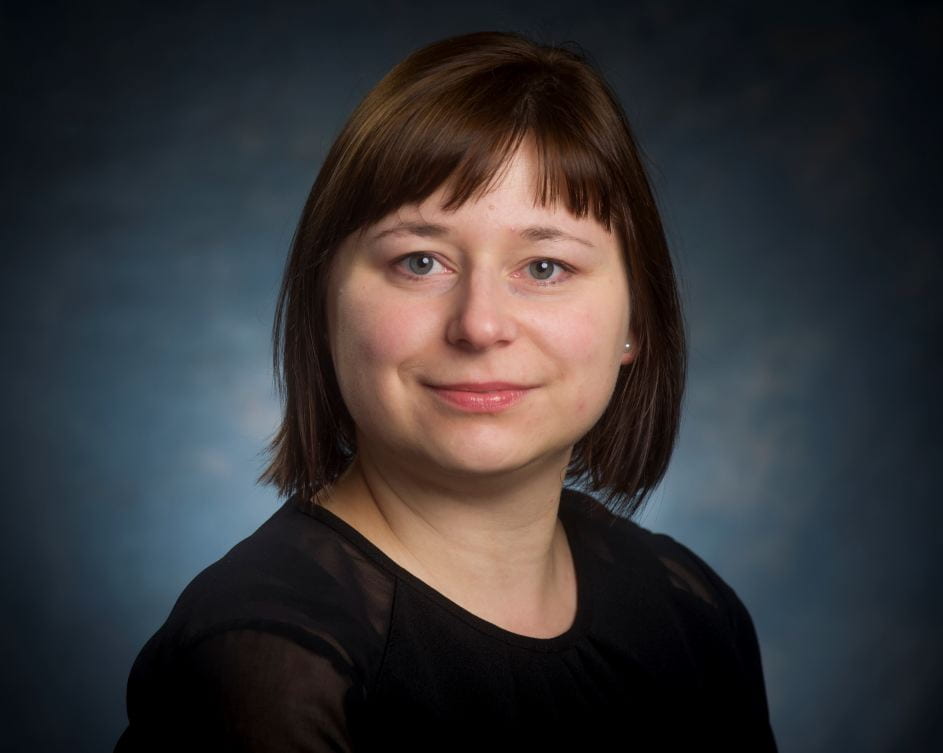
Beatrice Richter, PhD – PostDoc
Bea was a PostDoc in Dr. Faul’s laboratory at UAB from 2017 to 2019. She is originally from a small town in Brandenburg in Germany. Beatrice conducted her undergraduate studies in biotechnology and pharmaceutical biotechnology at the Brandenburg University of Technology and the Martin Luther University Halle-Wittenberg in Germany. She was a graduate student in the laboratory of Drs. Dieter Haffner and Maren Leifheit-Nestler in the Department of Pediatric Kidney, Liver and Metabolic Diseases at the Hannover Medical School in Germany, where she studied the effects of FGF23 and klotho on endothelial cells, and she received her PhD title in early 2017. During her time in Dr. Faul’s group, Bea studied the effects of FGF23 on cardiac fibroblasts and the role of FGF23 in physiologic cardiac remodeling. Her research was supported by a postdoctoral research fellowship from the Deutsche Forschungsgemeinschaft (DFG), the equivalent to an NIH/F32 fellowship. In 2018, she was awarded a postdoctoral fellowship from the American Heart Association (AHA), which due to an overlap with her DFG support she could not accept. To date, Beatrice has published 9 peer-reviewed articles based on her undergraduate and graduate studies, and she gave oral and poster presentations about her thesis and PostDoc projects at several conferences, including the Kidney Week of the American Society of Nephrology (ASN), the Congress of the International Pediatric Nephrology Association (IPNA) and the Congress of the European Society of Paediatric Nephrology (ESPN).

Britta Walter, MD – PostDoc
Britta was a PostDoc in Dr. Faul’s laboratory at the University of Miami Miller School of Medicine from 2009 to 2012. Prior, she went to medical school at the University of Heidelberg in Germany, where she also conducted basic research in the laboratory of Dr. Werner Franke at the German Cancer Research Center (DKFZ). Britta is currently a fellow in the Department of Pathology at the University Clinic Heidelberg. During her time in Dr. Faul’s group, Britta studied the effects of zonulin on podocytes. Her research indicates that patients with nephrotic syndrome might benefit from a gluten-free diet. Britta was supported by a postdoctoral research fellowship from the Deutsche Forschungsgemeinschaft (DFG), the equivalent to an NHI/F32 fellowship. During her time in Dr. Faul’s group, Britta published 1 peer-reviewed article, and she presented her work at several conferences, including the Kidney Week of the American Society of Nephrology (ASN).
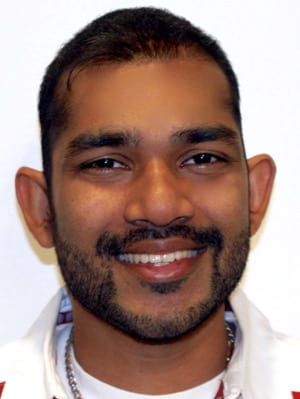
Ansel Amaral – Graduate Student
Ansel was an MD/PhD student in the Programs in the Biomedical Sciences (PIBS) at the University of Miami Miller School of Medicine, and he conducted his PhD thesis work in Dr. Faul’s laboratory from 2009 to 2012. Ansel grew up in Florida, and he conducted his undergraduate studies at the University of Miami. He is currently a fellow in Cardiology at the Feinberg School of Medicine at Northwestern University in Chicago. During his time in Dr. Faul’s group, Ansel studied the role of FGF23 in uremic cardiomyopathy using various cell culture and animal models, and he was the first to show that FGF23 can directly target the heart in a klotho-independent manner. His thesis work led to 5 peer-reviewed original articles, including 2 first-author papers. While in Dr. Faul’s group, Ansel gave oral and poster presentations at several conferences, including the Kidney Week of the American Society of Nephrology (ASN) and the Scientific Session of the American College of Cardiology (ACC). Ansel was supported by an F30 predoctoral fellowship from the NIH/NIDDK. He was the first trainee of Dr. Faul who received independent NIH funding.

Margaret Benny-Klimek – Graduate Student
Margaret was a graduate student in the Programs in the Biomedical Sciences (PIBS) at the University of Miami Miller School of Medicine from 2009 to 2014. She conducted her PhD thesis work in the laboratory of Dr. Joy Lincoln in the Department of Pharmacology, and transferred to Dr. Faul’s group in the Division of Nephrology following Dr. Lincoln’s departure. Margaret is originally from Pennsylvania, and she did her undergraduate studies at the Moravian College in Bethlehem. After receiving her PhD, she joined the Children’s National Medical Center in Washington DC as a postdoctoral research fellow. In her PhD thesis project, Margaret studied mechanisms of heart valve development and disease using various cell culture and animal models. Margaret had 1 first-author paper and gave poster presentations at several conferences, including Keystone Conferences and Weinstein Cardiovascular Development Conferences.
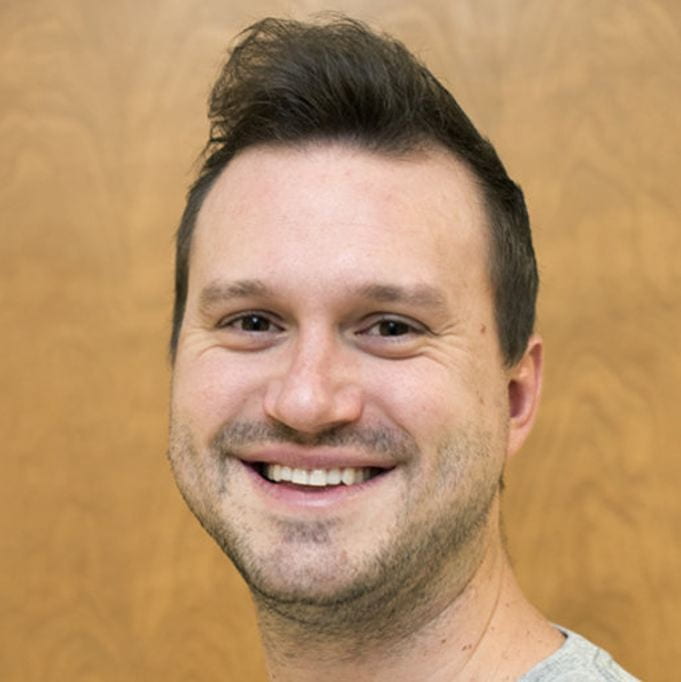
Brian Czaya – Graduate Student
Brian was a graduate student in Dr. Faul’s laboratory. Starting in 2016, he was a student in the Programs in the Biomedical Sciences (PIBS) at the University of Miami Miller School of Medicine. In early 2017, he transferred with Dr. Faul to UAB, where he was a PhD student in the Graduate Biomedical Sciences (GBS) Doctoral Training Program and in the Cell, Molecular and, Developmental Biology (CMDB) theme. Brian is originally from Central Florida, and he received his undergraduate training at the University of Florida in Gainesville. He is currently a postdoctoral research fellow in the group of Dr. Tomas Ganz at the David Geffen School of Medicine at UCLA. Brian’s PhD thesis project focused on studying the roles of FGF23 versus phosphate in inflammation and anemia. Brian was on an T32 grant from the NIH/NHLBI at UAB, and afterwards supported by an F31 predoctoral fellowship from the NIH/NIDDK. In 2018, he was also awarded with a predoctoral research fellowship from the American Heart Association (AHA), which due to an overlap with his NIH support he could not accept. Brian’s pre-doctoral research led to 5 peer-reviewed original articles, including 2 first-author papers, as well as a review article and an editorial. While in Dr. Faul’s group, Brian gave oral and poster presentations at several conferences, including the Kidney Week of the American Society of Nephrology (ASN).

Karla Schramm – Graduate Student
Karla was a graduate student in the Programs in the Biomedical Sciences (PIBS) at the University of Miami Miller School of Medicine, and she conducted her PhD thesis work in Dr. Faul’s laboratory from 2013 to 2017. Karla is originally from Germany, and she did her undergraduate studies in Florida. She is currently a PostDoc in the Genomics Institute of the Novartis Research Foundation in San Diego, and she has the goal to establish a research career in pharmaceutical industry. During her time in Dr. Faul’s group, Karla studied the effects of zonulin on podocytes, as well as the direct actions of FGF21 on the heart, using various cell culture and animal models. Her PhD thesis work indicates that FGF21 might contribute to diabetic cardiomyopathy. During her time in Dr. Faul’s group, Karla published 5 peer-reviewed articles, including 1 first-author paper, and she presented her work at several conferences, including the Kidney Week of the American Society of Nephrology (ASN) and the International Podocyte Conference. Her thesis project was supported by an F31 predoctoral fellowship from the NIH/NIDDK.
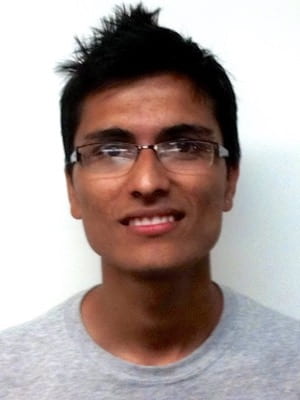
Saurav Singh – Graduate Student
Saurav was a graduate student in the Programs in the Biomedical Sciences (PIBS) at the University of Miami Miller School of Medicine, and he conducted his PhD thesis work in Dr. Faul’s laboratory from 2011 to 2016. Saurav is originally from Nepal, and he did his undergraduate studies at the State University of New York in Plattsburgh. He is currently a PostDoc in Dr. Zoltan Arany’s laboratory in the Cardiovascular Institute at UPenn studying cardiac metabolism, and he has the goal to establish an independent career in academic research. During his time in Dr. Faul’s group, Saurav studied the direct effects of FGF23 on the liver using various cell culture and animal models, and he was the first to show that FGF23 can directly target hepatocytes in a klotho-independent manner. His PhD thesis work indicates that FGF23 might contribute to systemic inflammation in CKD. During his time in Dr. Faul’s group, Saurav published 6 peer-reviewed articles, and he gave oral and poster presentations at several conferences, including the Kidney Week of the American Society of Nephrology (ASN).
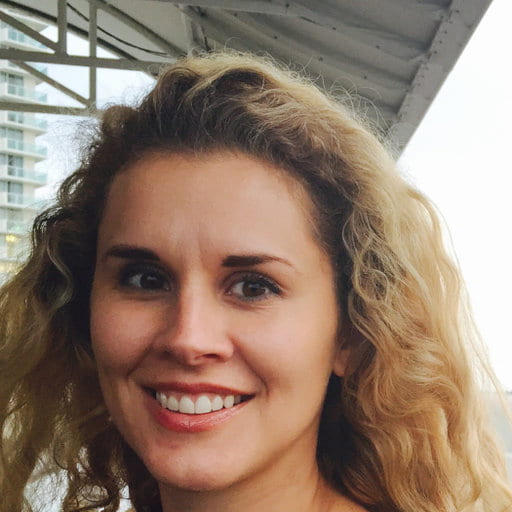
Alexis Sloan – Graduate Student
Alexis was the first graduate student of Dr. Faul. She was in the Programs in the Biomedical Sciences (PIBS) at the University of Miami Miller School of Medicine, and she conducted her PhD thesis work in Dr. Faul’s laboratory from 2009 to 2015. Alexis is originally from Florida, and she conducted her undergraduate studies at the University of Florida in Gainesville. She is currently a PostDoc in the Division of Nephrology at the University of Miami Miller School of Medicine, and she has the goal to establish an independent academic career in kidney-related research. During her time in Dr. Faul’s group, Alexis developed a novel mouse model for minimal change disease to study the role of NFAT in the regulation of podocyte structure and function. During her time in Dr. Faul’s group, Alexis published 6 peer-reviewed articles, including 1 first-author paper, and she presented her work at several conferences, including the Kidney Week of the American Society of Nephrology (ASN) and the European Renal Association-European Dialysis and Transplant Association (ERA-EDTA). Her thesis project was supported by the R25/IMSD program from the NIH, and then by an F31 predoctoral fellowship from the NIH/NIDDK.
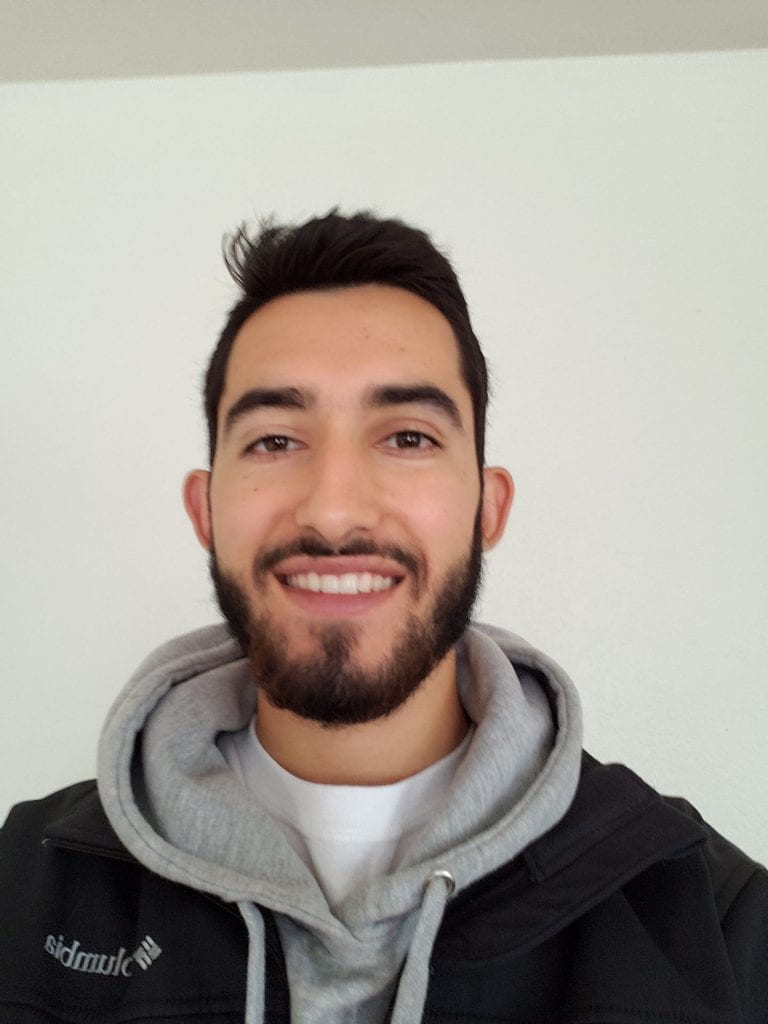
Salvador Castaneda Barba – Undergraduate Student
Salvador was an undergraduate student in Dr. Faul’s group at the University of Alabama at Birmingham (UAB) in the summer of 2018. He is originally from Mexico, grew up in California, and received his undergraduate training at the University of California in Merced. He is currently a graduate student at the University of Idaho. Salvador’s research project focused on studying the crosstalk between FGF23, angiotensin-2 and IGF1 in the regulation of cardiac remodeling. His stay in Dr. Faul’s laboratory was supported by UAB’s Kidney Undergraduate Research Experience (KURE) training grant from the NIH/NIDDK. Salvador presented his work at the Division of Kidney, Urologic and Hematologic Diseases (KUH) Summer Undergraduate Research Conference of the NIH/NIDDK.

Ping Hua, PhD – Lab Manager
Ping was the first lab manager of Dr. Faul at UAB, and she was the a key person responsible for setting up the lab after Dr. Faul’s move from Miami in early 2017. She managed the lab until the end of 2019. Ping is originally from Beijing in China, where she received her PhD title in Molecular Biology from The Academy of Military Medical Sciences. Since 2005, Ping has worked as Research Associate and Lab Manager in several institution and laboratories in the United States. In Dr. Faul’s laboratory, Ping was responsible for day-to-day business as well as overseeing and managing the mouse colony. Her research project focused on studying the effects of zonulin on kidney podocytes, and the interconnection between celiac disease and the nephrotic syndrome. Ping has published over 20 peer-reviewed articles based on her previous research, and she gave poster presentations at several conferences, including the Kidney Week of the American Society of Nephrology (ASN) and the Experimental Biology (EB) meeting.
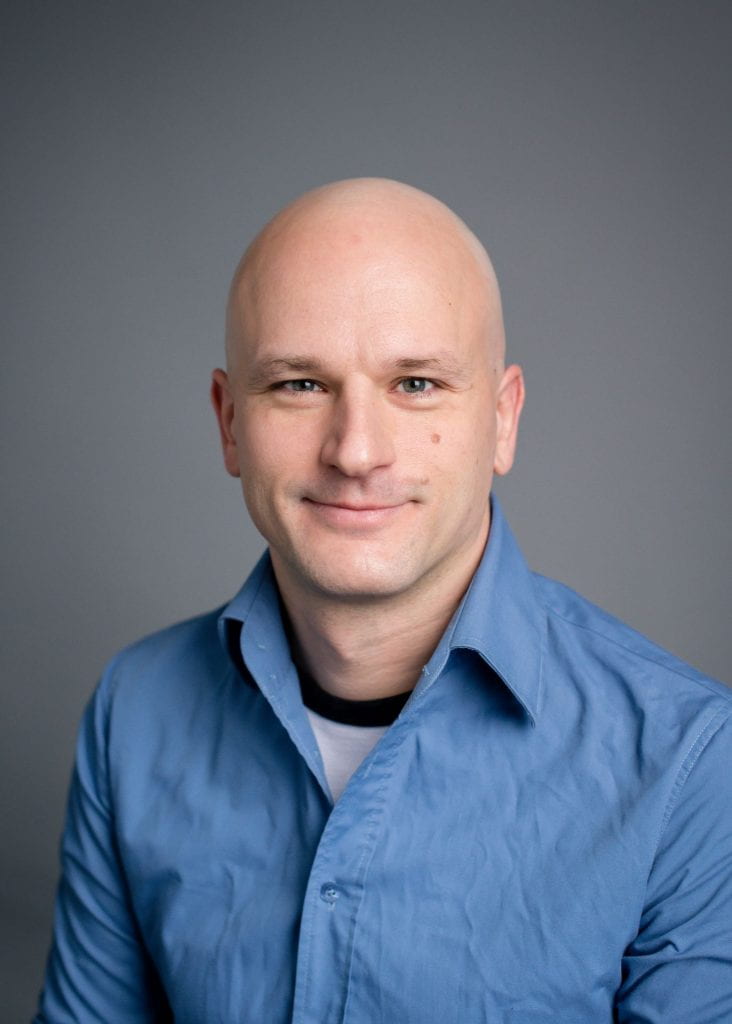
Dominik Kentrup, PhD – Instructor
Dominik was a PostDoc and an Instructor in Dr. Faul’s laboratory at UAB. He joined Dr. Faul’s laboratory in 2017. Dominik is originally from Münster in Germany, and he conducted his undergraduate studies in biology at the University of Münster. He was a graduate student in the laboratory of Dr. Stefan Reuter in the Department of Medicine and the Division of Experimental Nephrology at the University of Münster, where he studied CKD-associated cardiac remodeling as well as acute renal rejection in various animal models. He received his PhD title in 2012, and afterwards continued his postdoctoral training with Dr. Reuter, focusing on the development of non-invasive imaging techniques, such as positron emission tomography, sonography and magnetic resonance tomography, for the detection of acute cellular graft rejection. He is currently a PostDoc in the group of Drs. Aline Martin and Valentin David in the Division of Nephrology at Northwestern University in Chicago. In Dr. Faul’s laboratory, Dominik studied the role of FGF23 in acute kidney injury and in the nephrotic syndrome. He also studied the role of beta-klotho in the regulation of FGF21-mediated signal transduction and the cardiac effects of FGF21 in diabetes. He was supported by a postdoctoral fellowship from the Deutsche Forschungsgemeinschaft (DFG), the equivalent to an NHI/F32 fellowship. While being in Dr. Faul’s group, Dominik gave an oral presentation at the Kidney Week of the American Society of Nephrology (ASN), and he published 3 peer-reviewed original articles, including 1 first-author paper.

Cristina Muresan – Lab Manager
Cristina was the first lab manager in the Faul lab at the University of Miami Miller School of Medicine from 2009 to 2012. Cristina is originally from Romania, where she studied at the Iuliu Hatieganu University of Medicine and Pharmacy in Cluj-Napoca. She is currently a histotechnologist in the Department of Pathology at the University of Miami Miller School of Medicine. In Dr. Faul’s lab, Cristina was responsible for managing day-to-day business as well as overseeing and managing the mouse colony. Furthermore, she conducted a variety of histological studies, including the analysis of the glomerular ultrastructure by electron microscopy.

Johanna Heid – Visiting Student
While being an undergraduate student at the University of Würzburg in Germany, Johanna joined Dr. Faul’s laboratory at the University of Miami Miller School of Medicine for the summer of 2009. Johanna is originally from Heidelberg in Germany. She was a graduate student at the Goethe University in Frankfurt, where she conducted her thesis project in the Division of Cardiology and graduate in 2018. She is currently a PostDoc in the lab of Dr. Jan Vijg at the Albert Einstein College of Medicine in New York. Johanna’s research project focused on studying the role of NFAT in podocytes.

Sophie Karp – Visiting Student
Sophie conducted a research project as a visiting student in Dr. Faul’s group at the University of Miami Miller School of Medicine in the summer of 2016. She attended Byram Hills High School in Westchester New York, and is currently at Colgate University in Hamilton. During her time in Dr. Faul’s group, Sophie’s research project focused on studying the crosstalk between FGF23 and angiotensin-2 in the regulation of cardiac remodeling. Since then Sophie has conducted spinal cord injury research under Dr. Mar Cortes at the Burke Medical Research institute in the spring of 2018, as well as kidney research with focus on the SLC26A6 receptor under the guidance of Dr. Peter Aronson at Yale University during the summer of 2018. Additionally, Sophie has been a volunteer EMT since the summer of 2017, and works for the Southern Madison County Volunteer Ambulance Corps. She aspires to study medicine and to earn an MD degree by the summer of 2025.

Alexandra Kowalski – Visiting Student
While being an undergraduate student at the University of Mannheim in Germany, Alexandra joined Dr. Faul’s laboratory at the University of Miami Miller School of Medicine for the summer of 2012. Alexandra is originally from Germany, and currently, she is a graduate student at the Mannheim University of Applied Sciences in cooperation with the Medical Faculty Mannheim at the University of Heidelberg and AbbVie Germany. During her time in Dr. Faul’s group, Alexandra’s research project focused on identifying FGFR isoforms that can be activated by FGF23. Afterward, she received a Bachelor in Biotechnology and a Master in Biomedical Science and Technology from the Mannheim University of Applied Sciences in Germany.

J. Alberto Navarro-Garcia – Visiting Student
Alberto is originally from Madrid in Spain. While a graduate student at the Hospital Universitario 12 de Octubre, Alberto joined Dr. Faul’s laboratory at UAB for the summer of 2019, based on a collaboration between Dr. Faul and Alberto’s Thesis Mentor, Dr. Gema Ruiz-Hurtado. Alberto is currently finishing up his thesis project. Alberto’s research project focused on studying FGF23-induced calcium signaling in cardiac myocytes.
